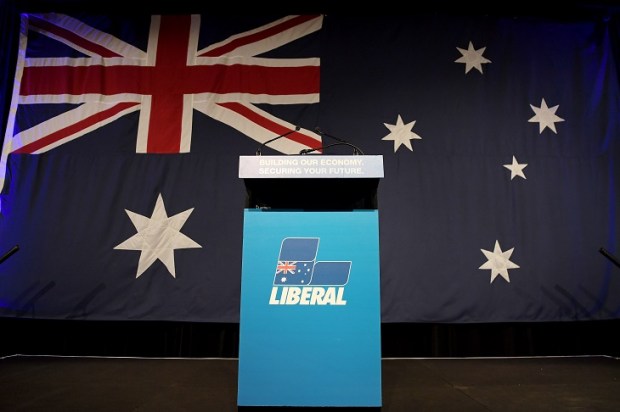‘And he that breaks a thing to find out what it is, has left the path of wisdom.’ – Gandalf to Saruman, The Lord of the Rings
Encountering an exquisite tapestry testifies to the artistry of a master weaver. It is the end result of thousands of meticulous folds that have been carefully ordered. If threads are pulled and the work unravelled, the detail of the individual strands is exposed, accentuating the finery of their twists and contours. Observing these strands presents a new kind of knowledge, perhaps even a sense of wonder at that which was concealed. The tapestry’s parts are now known, but the woven purpose of the whole has been lost.
In the world of JRR Tolkien, many mystical objects animate his fictional realm of Middle-earth. In it, a magical sphere known as a Palantir is possessed by the evil wizard Saruman, offering those who gaze into it a glimpse of a possible future. Although understood as indestructible, if one were somehow smashed, the resulting shards would provide new information not otherwise known, but at the cost of the Palantir’s foretelling purpose. Like unpicking a tapestry only to be left with a mess of disconnected strands, there is immense cultural interest in our time in breaking things to find out what they are. The cause of this enthusiasm for breaking – a seeing-through what is meant to be seen – is an all too human desire to embrace new horizons of hope.
A common feature of human experience is looking to these horizons for new possibilities of meaningful living. In directing ourselves towards them, we yearn to finally arrive somewhere that meets with happiness and flourishing, somewhere tethered to thick notions of truth and goodness. Hope longs for fulfilment without end, regardless of how many times it has failed to find it.
Religious life provides a coherent framework for these universal tendencies. In Christianity, one way meaning is expressed is in the direction of gifts towards noble ends. Freedom is understood as providing the conditions for creatively expressing love and responsibility. It is not for licentiousness, but for grasping the ancient paradox of ‘it is better to give than to receive’. In its finer moments, it offers a model of other-focused self-effacement, understanding giving as something rewarding to us by our very design. Freedom is therefore best exercised when it forms charitable communities, cultivates a sense of duty, and searches for opportunities to serve.
By rejecting an over-arching meta-narrative, modern thought instead directs us to locate hope in the sole authority of mankind’s imagination. The world is cast as malleable matter to facilitate bespoke visions of life and expressive identities. Technology controls much of what we encounter: from the perpetual novelty of social media to the yet unknown possibilities of transhumanism. Viewing conventional boundaries as constraints, any sense of what ought to be is erased, replaced by explorations of what can be. Purpose has become synonymous with desire, and pathos has become its guiding force.
The influence of this modern project has rapidly accelerated over the last century, and is now reaching into unexpected places.
In 2021, biologist Richard Dawkins was stripped of his ‘Humanist of the Year’ award for, according to the institution, ‘demean[ing] marginalised groups’, specifically transgender people, ‘under the guise of scientific discourse’. While Dawkins was (until then) a humanist in good standing, his commitment to chromosomal truth rested on a trusted bedrock, thought at the time impervious to breaking. Several tweets proved otherwise, consigning him to an exile reserved for the likes of JK Rowling and other binary-honouring feminists.
Dawkins’ faith in the exhaustive, explanatory power of science drew a line in the sand against religious delusion, intended as the last line on what is necessary for truth and knowing. Only a decade or so later, he found himself on the wrong side of history.
What Dawkins and his fellow travellers failed to appreciate was how unsatisfying this model would be for a humanity driven by hope’s fulfilment. Few believe that science should be burdened with the expectation of explaining everything, and even fewer believe joy is found in contemplating the cold indifference of the cosmos. As Dawkins himself tweeted, ‘Do you think the universe gives a damn how you feel?’
Having directed this sentiment to an audience of needy beings, each with aspirations for fulfilment, it seems inevitable such a limiting enterprise was doomed to fail. Indeed, Dawkins’ vaunted line has now met with a new breed of line-drawers, locating themselves in a kind of all-consuming, therapeutic deconstructionism. Seeking wellness in uncharted anthropological waters, they continue breaking things in order to find out what they are.
But when such breaking extends to our human selves, we do so whilst overlooking one vital component: the soul. In the absence of any material or immaterial boundaries, we no longer take interest in finding the soul of others, or the soul in ourselves. CS Lewis’ Screwtape Letters illustrates:
We produce this sense of ownership not only by pride but by confusion. We teach them not to notice the different senses of the possessive pronoun—the finely graded differences that run from ‘my boots’ through ‘my dog’, ‘my servant’, ‘my wife’, ‘my father’, ‘my master’ and ‘my country’, to ‘my God’. They can be taught to reduce all these senses to that of ‘my boots’, the ‘my’ of ownership. Even in the nursery a child can be taught to mean by ‘my teddy bear’ not the old imagined recipient of affection to whom it stands in a special relation (for that is what the Enemy will teach them to mean if we are not careful) but ‘the bear I can pull to pieces if I like’.
In triumphing over the body, we have taken possession of the only place telos can now be located, where: ‘There is no such thing as Man – it is a word. There are only men.’ In the absence of the supernatural soul, even nature becomes stripped of the power to be idolised in its pure form. We are instead consumed by the sovereignty we have over its dismantling.
The LGBT community has experienced the fallout of this line-crossing discord. Holding to irreconcilable philosophies of sexuality, the acronym has proven challenging to cohere. A global breakaway group known as the ‘LGB Alliance’ has emerged in response. On their website, the Australian chapter describes their goal:
‘We believe that biological sex is observed in the womb and/or at birth and is not assigned. In our view, current gender ideologies are pseudo scientific [sic] and present a threat to people whose sexual orientation is towards the same sex, in the case of bisexuals, to both sexes. In addition, we believe that these ideologies are confusing and dangerous to children.’
Consider also gay journalist Andrew Sullivan, once feted for his landmark 1989 essay that shifted the cultural tide towards same-sex marriage. Now in the LGB camp, he suffers harsh treatment for his views, remarking recently that ‘critical queer theory is dedicated to the abolition of homosexuality as same sex attraction.’
As remnants of an earlier form of modernity, the LGB Alliance and Sullivan have met with the full force of the new line-drawers.
The wrong side of history beckons.
Unwilling to depart from scientific truth with the same confidence as their former community, they have now made surprising enemies. Driven by a hope that brooks no opposition, these new line-drawers are not religious bigots, but secular ones. As unpleasant as the LGB vs T skirmishes have become, they demonstrate the cannibalising dogmatism of secular progress.
One wonders if greater consideration and leniency should be given to LGB Australians who prefer the unbroken boundaries of science and biology, namely, gay men who struggle to be told that they must find transgender men physically attractive. Entire nations are now at risk of accusation, as Finland and Sweden have reversed course on their puberty blocker policies.
In his seminal work the Abolition of Man, published during the second world war, C.S. Lewis presciently said:
‘If man chooses to treat himself as raw material, raw material he will be: not raw material to be manipulated, as he fondly imagined, by himself, but by mere appetite … in the person of his dehumanised Conditioners.’
These ‘Conditioners’ are not Orwellian overlords, they are trusted supervisors, perhaps medical professionals, serving the ostensible needs of participants. They explore hitherto unknown horizons, resisting the tyranny of biology to conquer the body. It is no longer the wisdom of bodily telos being sought but a kind of post-human mastery. Any appreciation for historical wisdom correcting such thinking kicks against the goads, for if progress of this kind is to be vindicated, it must keep confidently passing points of no return.
Transgenderism is therefore only a small subset of something with much broader implications. As anthropological distinctions become increasingly flattened and seen as arbitrary, new frontiers in transhumanism will emerge, frustrating attempts at coherent categorisation.
Lewis understood these features of the modern project, and its inability to impose self-restrictions once disconnected from the Tao. Lewis’ Tao represents universal values beyond time and culture, woven into the fabric of existence. His deliberate selection of its Eastern version (Tao: ‘The Way’) emphasises its cultural ubiquity.
For a time, Dawkins’ brand of scientific modernism, becoming an almost deified ‘scientism’, defied the Tao by attempting to replace it. But this time has now passed, as the post-Christian impulse for breaking supercharges desire and defies any perceived limitations of flesh and blood. We should not expect otherwise from those who’ve bet the house on the next horizon of hope.
In contrast, the transcendent quest of many religions is to seek not merely truth in the abstract, but ‘true truth’. Often mobile in how they inhabit a cultural setting, religions embody revealed truth and represent a natural order impervious to the vicissitudes of time. Just as Dawkins and Sullivan are entitled to their modernist frameworks on immutable boundaries and ethics, religions should also be allowed to embrace their pre-modern ones without being coerced by an aggressive secularism.
CS Lewis warned that ‘a wholly transparent world is an invisible world. To “see through” all things is the same as to not see’. Many religious Australians remain connected to an enchanted world, bristling with meaning in the awesome and in the mundane. The world communicates teleological order, enlivening those with the patience to appreciate its elegance and numinous depths. From this depth comes an appreciation of an orderliness that regulates life, and the limits prescribed by nature.
Many people of faith will continue to hold to the essence of Gandalf’s statement to Saruman. Pioneering discovery via breaking and transgression leaves the path of wisdom. Honouring that which reality and nature presents in its beauty will endure to the end of history.
Rohan McHugh is the former Executive Director of Christian legal think-tank Freedom for Faith.

























